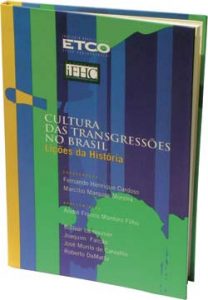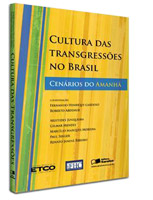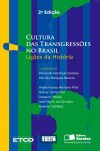 Will Brazil one day be able to overcome corruption, tax evasion, piracy and other such tricks?
Will Brazil one day be able to overcome corruption, tax evasion, piracy and other such tricks?
Anthropologist Roberto DaMatta addressed this subject in a humorous way at a seminar on the cultural reasons behind disobedience to laws in Brazil, held some years ago by ETCO-Brazilian Institute of Ethics in Competition and by the iFHC Institute.
At the event, which gave rise to the book Cultura das Transgressões no Brasil - Lições de História (Saraiva, 133 pag., R $ 52), he told two anecdotes and presented an optimistic conclusion. Remembering the three thoughts of the anthropologist helps to feed hope. Check out:
Anecdote 1: God and presidents
One day, God showed his benevolent side and allowed to answer with His terrifying divine sincerity to a question, and only one, to be asked by Presidents Mikhail Gorbachev, Ronald Reagan and José Sarney, then presidents of the Soviet Union, the United States and Brazil .
Chosen to be the first, Gorbatchev asked whether the Soviet Union could survive without the Communist Party and ethnic conflicts. The thunder that represented the voice of God said: "Gorbachev, one day everything will be at peace in your country, but it will not be in your administration."
Then Reagan asked when racial conflicts were going to end in the United States, to which God replied: "Ronald, one day everything will be resolved, but it will not be in your administration."
Finally, when Sarney's turn came, he asked when inflation would end in Brazil. And God, in his infinite realism, replied: "Sarney, one day you will overcome inflation, but it will not be in MY administration".
Anecdote 2: Castaways from 4 countries
A ship with castaways was adrift in the Atlantic Ocean. Inside was an Englishman, a Russian communist, two Americans, three Brazilians and two cynics.
One cynic turns to the other and says:
- Want to bet that I make them all jump in the water?
- I doubt it!
He called the Englishman and said:
- The traditions of the English navy demand that you jump in the water.
The Englishman jumped.
Then he called the Russian and said:
- The Communist Party demands that you jump in the water.
He jumped.
With the Americans it was the greatest tranquility:
- There is an insurance of 5 million dollars if you jump in the water.
The two jumped.
The three Brazilians were talking to each other and had paid no attention to anything. The cynic came to them and said:
- Gentlemen, it is forbidden to jump in the water.
The three jumped.
- The optimistic conclusion
Anthropologist Roberto DaMatta used the first anecdote to remember something that new generations may not even be able to imagine: how hard it was to believe, in the 80s and 90s, that Brazil could overcome inflation. At that time, the country amended one economic plan after another, without success. The anecdote expresses, according to DaMatta, "the spirit of the traditional and well-established Brazilian catastrophism according to which the country has no way", since "not even God would be able to promote the cure of the so-called" inflationary dragon "".
But, as the anthropologist recalled at the event promoted by ETCO, the country managed to overcome inflation, demonstrating that Brazilian society has the necessary rationality to face complex problems that require serious and permanent combat. And he expressed the opinion that, sooner or later, Brazil will also be able to win the battle against corruption. "I am convinced that the success in controlling a fundamental dimension of Brazil's economy, such as inflation, forms the backdrop for a growing reaction to the scandals motivated by transgressions," he said. If he is right, one day the second anecdote, which presents transgression as a typical Brazilian trait, will also cease to make sense



 Consolidated economic stability after 17 years of the Real Plan, respect for democratic rules and the rise of class C are factors that pave the way for changing a culture that has been jamming the machine of Brazilian society since the 16th century: the culture of transgressions .
Consolidated economic stability after 17 years of the Real Plan, respect for democratic rules and the rise of class C are factors that pave the way for changing a culture that has been jamming the machine of Brazilian society since the 16th century: the culture of transgressions .

